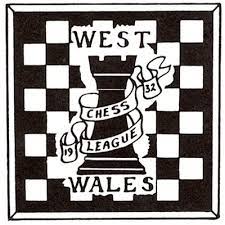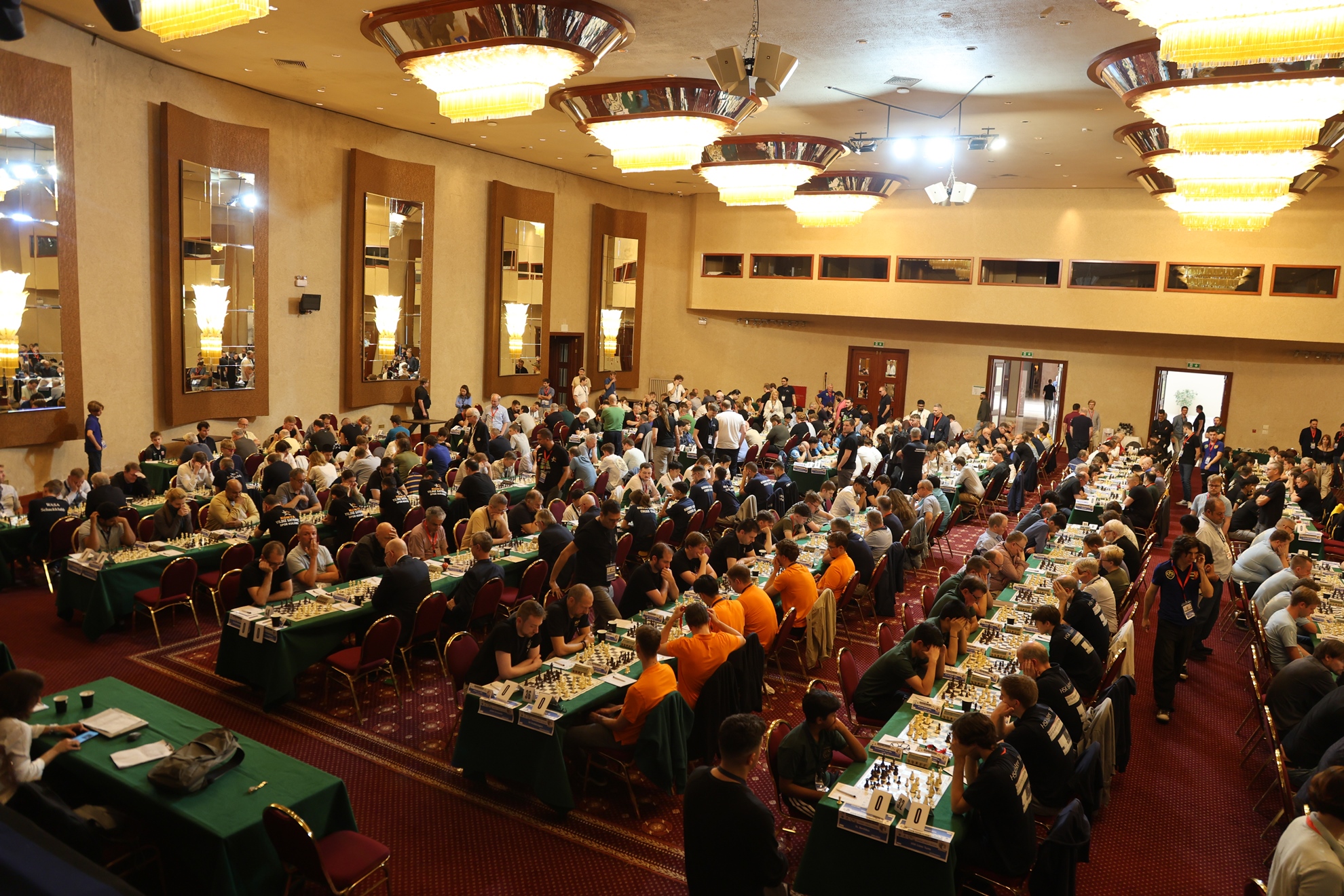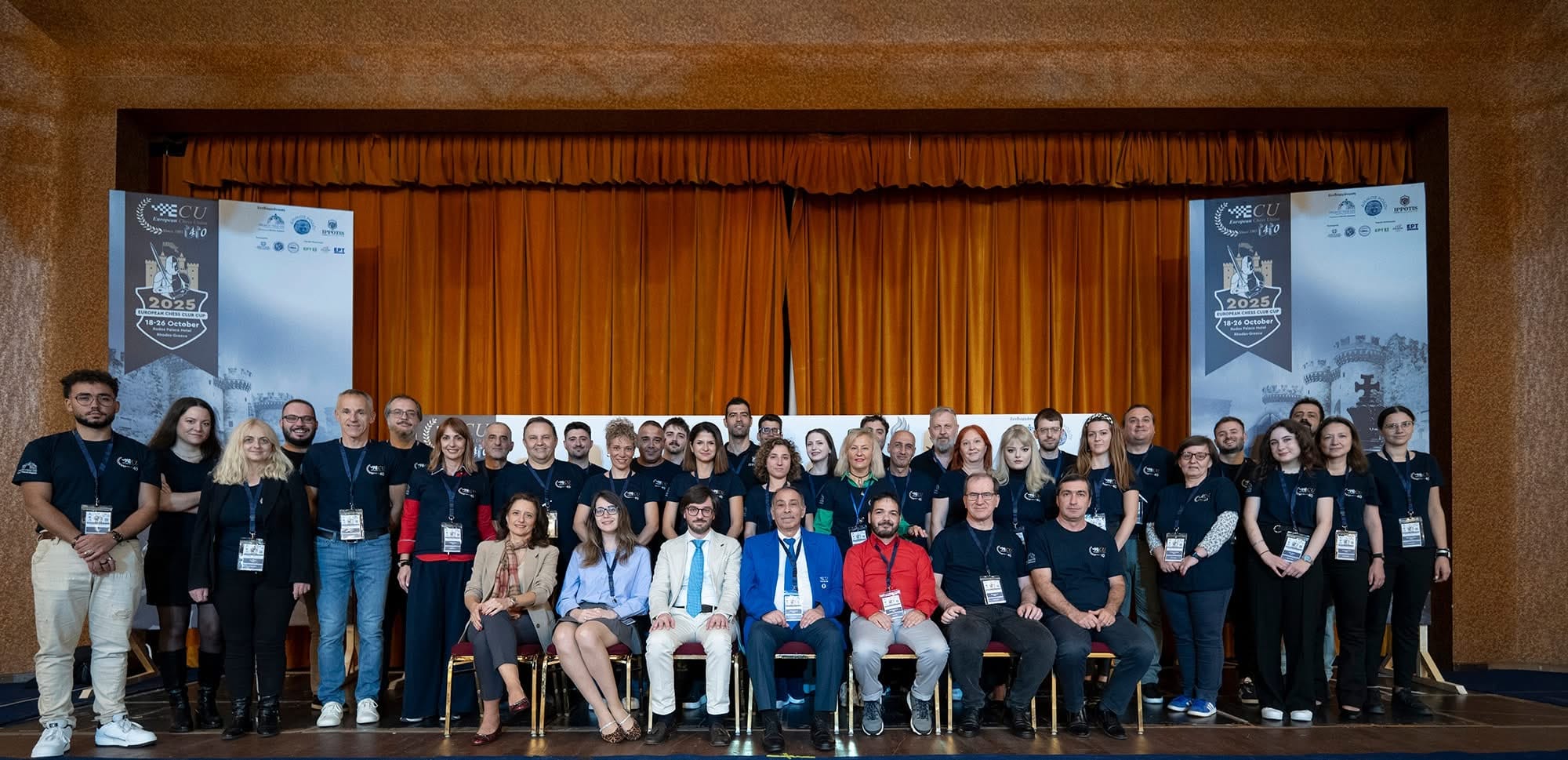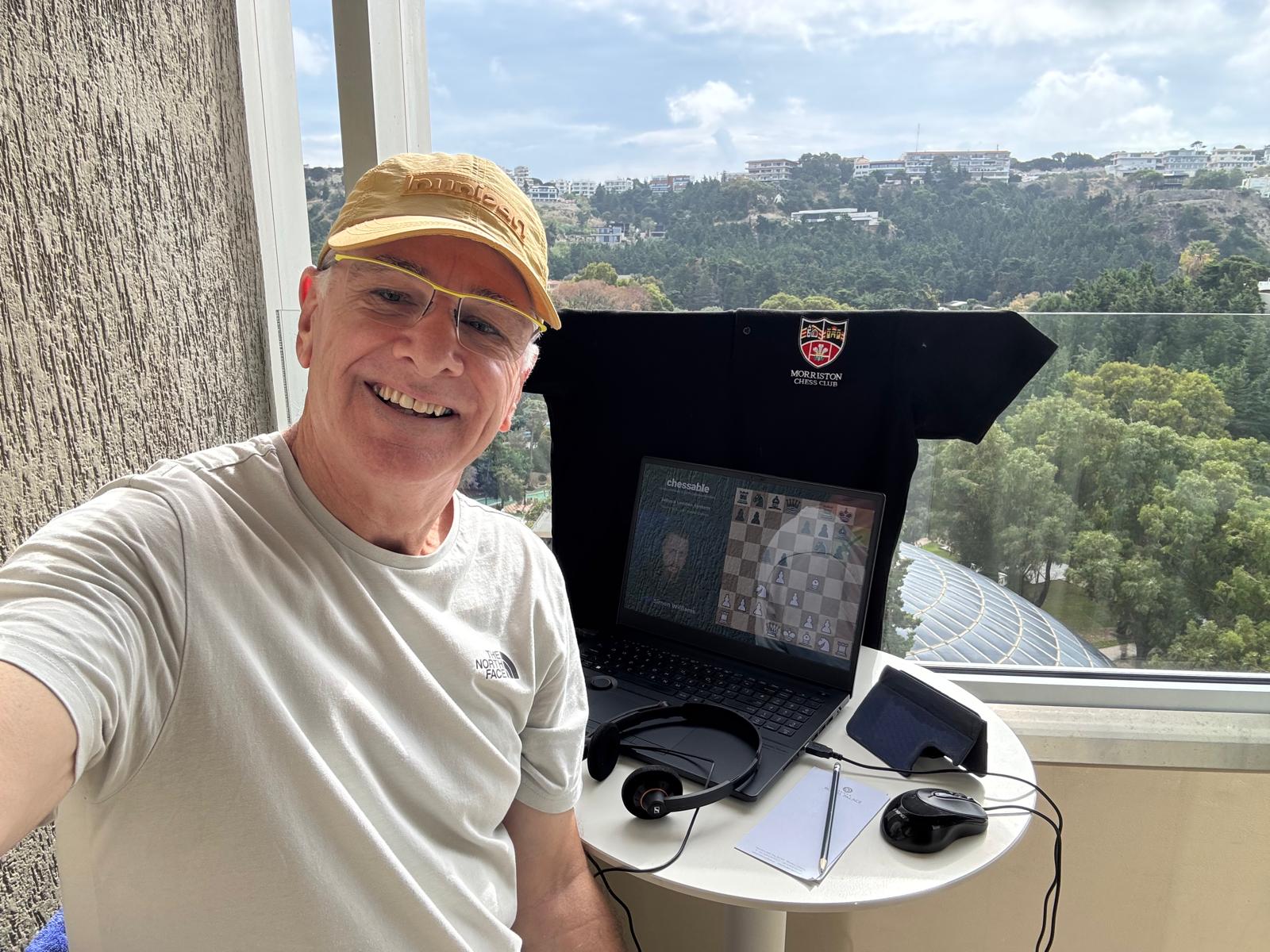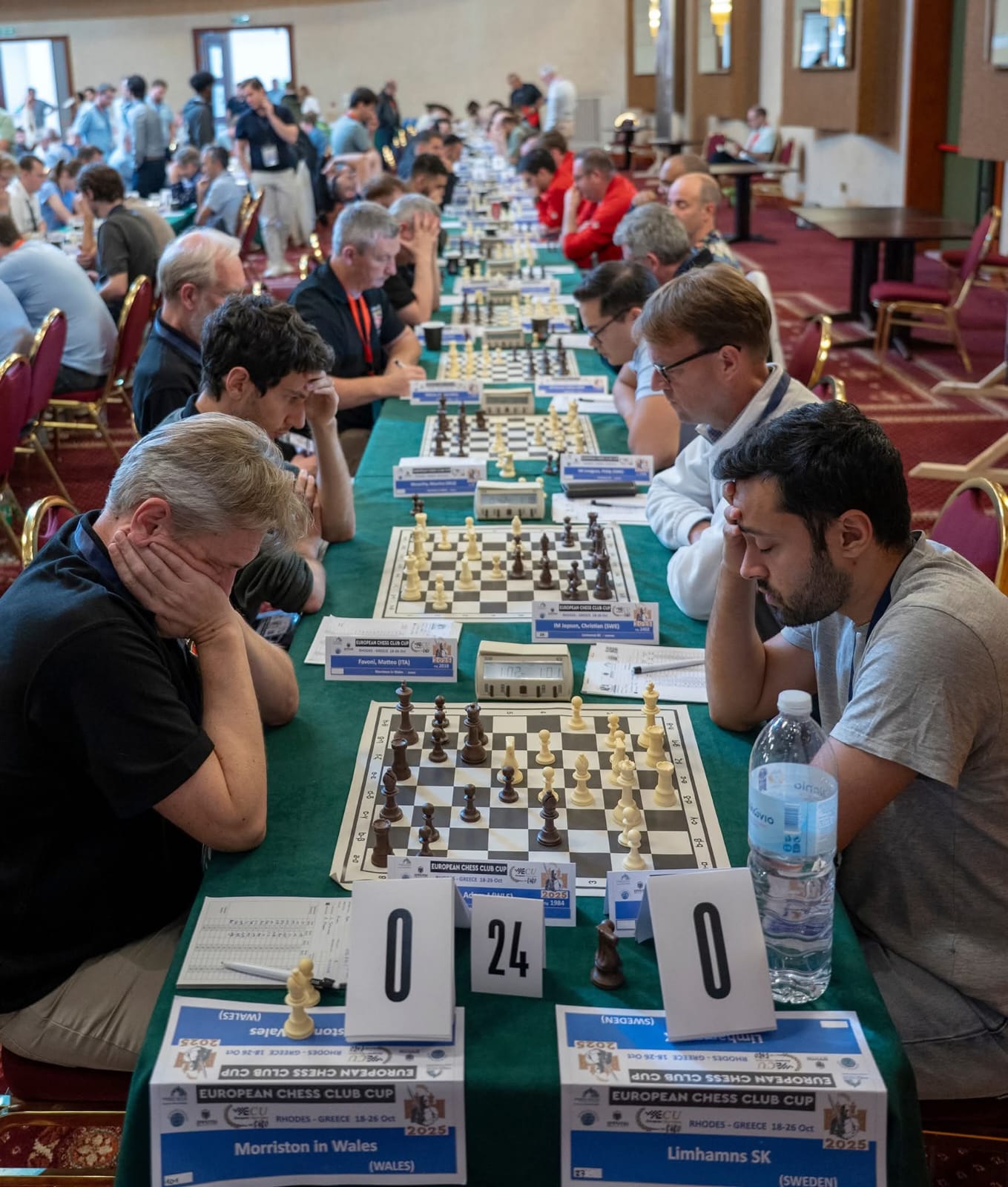
How often do you get to teach a 2700-rated super-grandmaster something? For us, it happened on day two in a hotel lift in Rhodes.
The Lift Ride
The doors opened, and there stood Nihal Sarin - one of India's strongest players, a teenager who regularly defeats the world's elite. He was doing what he's famous for: casually rattling off deep variations while his opponent struggled to keep up. Ian, always honest, mentioned we weren't particularly strong players. Nihal's response? He didn't care about ratings. He just wanted to know: "Where's Morriston?" as he is famous for playing GeoGuessr when he live streams. Before we knew it, we were giving one of the world's top young grandmasters tips about identifying Wales on GeoGuessr from the bilingual road signs. The lift reached our floor far too quickly. That moment encapsulated something important: at these tournaments, chess ability doesn't create barriers. A 2700-rated super-GM is just another chess enthusiast, curious about your corner of the world.
The Playing Hall: A Different World
Before walking into the tournament area everyone had to walk through airport security metal detectors and have a body scan. Bizarrely, for a chess event, we weren't allowed our own pens. Entering the tournament hall for the first time was sobering. Over 100 teams, hundreds of boards stretching into the distance. This wasn't a village hall with wobbly trestle tables - this was professional chess. The atmosphere was controlled with military precision by the arbiters from Ippotis, the Greek chess club hosting the event. They were strict, professional, and ruled the hall with an iron rod. Silence was mandatory. Players finishing their games had exactly 15 minutes of grace before being asked to leave the playing area.
The rules were uncompromising: no drinks on tables - everything had to be placed under your chair to prevent spillages. Nothing was allowed on the playing surface. Not even spectacles. We watched one player receive a warning for leaving his glasses on the table while calculating. We thought this was taking things a little too far as it seemed to penalise the older guys (including us) who sometimes either needed varifocals or two pairs of glasses. This was serious chess, played to exacting standards. It made our Wednesday night club games feel charmingly casual by comparison. Here is a photo of the team of arbiters controlling the event.
Board Order Revelation
One surprise came from the rules themselves. In the Welsh leagues, we're required to play in grade order - your strongest player on board 1, descending from there, with only a 100-point tolerance. It ensures fairness and prevents farming. The European Club Cup has no such restriction. Teams could field players in any order they wanted. Some teams put their strongest players on lower boards specifically to help them secure title norms - easier opposition, better percentage chances. Matteo could have done the same. He could have played board 4 or 5 and faced weaker opposition while hunting for his CM title. Instead, he played board 2 - taking on genuinely tough opponents, earning his title the hard way. We think he did it the right way. The title means more when you've fought for it against proper opposition.
The Preparation Shock
After our matches, several opponents revealed something that stunned us: they'd prepared for us. Extensively. They'd downloaded all our Welsh Premier League games from chess-results websites. Analysed our opening choices. Noted our tendencies. One team described to us their preparation files - they had notes on each of our players, statistical analysis of our opening repertoires, identified weaknesses. But perhaps the most telling moment came before we'd even played a game. One opposing captain approached Ian with a grin: "You know, you're better looking than White Knights!" 😃 Our local rivals. They knew who our local rivals were. And what we looked like. They'd clearly done their homework - right down to checking team photos online. They knew what we looked like before meeting us. Meanwhile, our preparation? Far less thorough. We'd looked at their ratings, maybe checked a few recent games if we had time. The difference in professionalism was stark. At this level, homework matters. These teams treat every match seriously, regardless of opponent strength. Being seeded 101st didn't mean they took us lightly especially after we had beaten Aatos the 50th seeds in the first round - it meant they prepared to ensure they didn't lose to us. That's the mentality we need to develop - though perhaps we can skip the part about researching opponents' good looks!
Learning from the World Champion
When we could, we'd watch the top boards. One game proved particularly instructive: Gukesh - the World Champion himself - had simplified into an endgame with Knight and 4 pawns versus his opponent Erigaisi's Bishop and 3 pawns, all on the same side of the board. To amateur eyes, it looked drawable. Bishop and pawns should hold against Knight and pawns, right? We watched Gukesh convert it methodically. The technique was mesmerizing - every move with clear purpose, restricting the bishop, advancing his pawns in coordination with his knight, giving no counterplay. What looked like a theoretical draw became a win through pure technique. That's the gap. We'd have tried and probably drawn. He made it look inevitable.
Even Elite Players Blunder
But here's the comforting part: they're human too. We watched a game where Volokitin's opponent sacrificed a rook for what appeared to be a winning attack. Brilliant sacrifice, forcing checkmate in several moves. Except Volokitin found a counter-rook sacrifice, leading to a deadly knight fork that won the queen. The "winning" attack evaporated instantly. His opponent sat there, stunned, as we all were. Even at 2600+, people miss things. They miscalculate. They get their opponents' moves wrong. The difference is frequency - they blunder far less than we do, but they still blunder. This was oddly encouraging. Perfect chess isn't possible at any level. The goal isn't perfection - it's reducing our error rate. If we can cut our mistakes by even 20%, we'd gain significant rating points.
Validation from Gelfand
Boris Gelfand walked past our boards during one of the rounds. For those unfamiliar: Gelfand challenged Anand for the World Championship in 2012, has been rated over 2700, and is one of the greatest players of his generation. He's forgotten more about chess than most of us will ever know. He stopped to watch our games. Several moves later, he was still watching. Taking genuine interest in the positions, following the tactics, seeing what we'd do. Afterwards, he sought us out: "Your games were fighting and interesting." Our rating average was hundreds of points below the elite. But one of the greatest players never to be World Champion found our games worth watching and worth commenting on. It taught us something vital: at the highest level, they appreciate fighting chess. Not perfect chess, not error-free chess, but chess played with courage and determination. We might have lost most of our matches, but we'd earned respect by competing the right way. That validation meant more than any tournament points could.
The Sussex Connection
Within minutes of arriving at the hotel bar on the first evening, we met a group from Sussex Martlets. They were young (except for David who was the same age as our Ian), enthusiastic, and immediately welcoming. Throughout the week, we'd check in with each other - comparing results, discussing tough matches, commiserating over losses. But the conversations went deeper than scorelines. We exchanged training methods: how do they prepare for tournaments? What's their approach to opening study? How do they balance competitive play with improvement work? They shared their club structure - how they develop juniors, integrate adult members, maintain team cohesion. We discussed repertoire choices and strategies for handling much stronger opposition. These weren't hollow pleasantries. They were genuine exchanges between chess players trying to improve. By week's end, we'd gained not just friends but a network of ideas to take home.
The Chess Writer's Insight
One evening we met Tim Wall, an avid writer for the ECF (English Chess Federation). He was interested in our story - a Welsh club competing despite being massively outgunned. The conversation naturally turned to chess promotion: How do we encourage more young players? How do we make adult improvers feel welcome? What makes clubs like Morriston work? Why the ECF has different K factors for wins and losses for juniors? Tim shared ideas from across English chess - successful junior programs, innovative teaching methods, ways to make competitive chess less intimidating. We discussed article writing, website strategies, social media approaches. That exchange will shape how we develop our club in the future. Sometimes the most valuable tournament lessons aren't learned at the board.
What Being Around Elite Chess Teaches
The educational value permeates everything: Calculation speed: Watching these players analyse showed us what elite calculation actually looks like. They don't calculate faster - but they see patterns instantly that we have to work out move by move. Preparation culture: You'd see players reviewing opening files, discussing plans against specific opponents. The thoroughness was humbling. Mental resilience: We watched 2600+ players fight through horrible positions, never giving up, finding defensive resources we'd never spot. That mental toughness is its own form of chess strength. Analysis depth: Overhearing post-game analysis revealed how differently they see chess. Where we'd be satisfied with "equal," they'd find subtle improvements. Where we'd resign, they'd explore hidden resources.
The Reality of the Rating Gap
Let's be honest about what competing at this level feels like. In Round 2, we faced Swedish team Limhamns SK. They had a grandmaster on board 4! Most club teams put their strongest player on board 1 and pray. They had GM strength in reserve. Andrew fought that grandmaster brilliantly - nearly holding a draw against an opponent rated hundreds of points higher. Sam, in his debut international appearance, won an exchange and had genuine winning chances before his stronger opponent's experience finally prevailed. The 5-1 scoreline flattered them. We competed. We created chances. We made them work for their victories. Andrew could have won but lost (4-2), I could have had at least a draw but lost (3.5-2.5) and Sam should have won as well (2.5-3.5). A result that would have been a second upset in a row! Afterwards, they knew how close it had really been and were incredulous that our ratings were so low. Ian told their captain that our national ratings were 100 points higher. Their captain responded with “So are ours!”. That's what you learn at this level: the gap between 2000 and 2400 isn't some mystical chasm. It's real and significant, but it's based on concrete skills you can identify and work on. Better calculation. Deeper preparation. Fewer blunders. Stronger endgame technique. Watching Gukesh convert that knight endgame showed us what technique looks like. Watching Volokitin's opponent blunder showed us that even they're human. The path forward became clearer: reduce errors, improve technique, prepare more thoroughly.
For Young Players: The Pathway Is Real
If you're a junior reading this, understand what's achievable. Matteo's story proves it. Now he's a Candidate Master who competed in the European Club Cup. That progression is achievable if you:
- Join an ambitious club
- Work consistently on your game
- Play in leagues and tournaments
- Take opportunities when they arise
- Learn from stronger opposition
- Choose the hard path (like Matteo playing board 2)
The elite players we watched aren't from another planet. They've just done these things longer and more thoroughly than we have with coaches to tell them the path to tread.
For Adult Improvers: You're Welcome
Most of our team had grey hair. We're not professionals or prodigies. We're people who love chess and wanted to test ourselves. The chess community welcomed us completely. Nobody patronised us. Gelfand took time to watch our games. If you've always loved chess but never joined a club, tournaments like this show what's possible. You don't need to be a master - you need to be curious, willing to learn, and ready to compete.
What We're Taking Home
We didn't return as grandmasters. We didn't gain 200 rating points overnight. But we came home with:
- Clear understanding of what elite chess looks like
- Specific areas to work on (technique, preparation, calculation)
- Training methods
- Ideas about chess promotion
- Validation that fighting spirit matters
- Proof we can compete (even while losing) at this level and close the gap
- Knowledge that even elite players blunder
- Understanding that preparation counts
- A network of chess contacts
Perhaps most importantly: we proved to ourselves that Morriston belongs at this level. Not to win - not yet, perhaps not ever - but to participate, compete, and represent Welsh chess with dignity.
The Invitation
This world isn't closed to you. Join a club, work on your game, say yes when opportunities arise, and within a few years you could be:
- Competing against grandmasters
- Learning from world-class players
- Representing Wales internationally
- Understanding what elite chess involves
- Building a chess network across Europe
The route from club night to Rhodes is real. Matteo walked it. The next person could be you.
Coming Next
In our final article, we'll examine specific games - the positions where we fought hard, the moments we nearly held draws, and the points where superior technique crushed us. Because improving at chess means learning from both victories and defeats.
